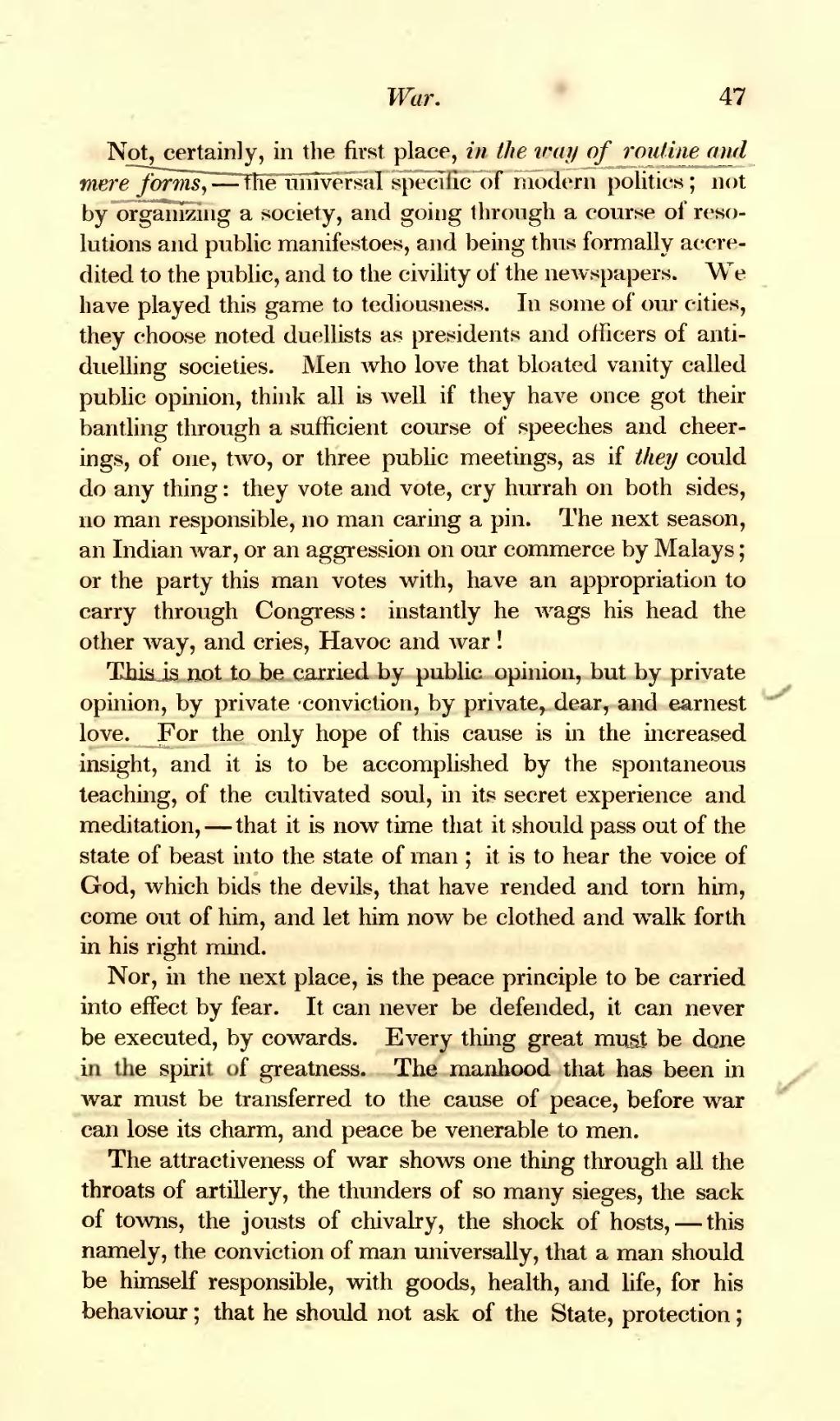Not, certainly, in the first place, in the way of routine and mere forms,—the universal specific of modern politics; not by organizing a society, and going through a course of resolutions and public manifestoes, and being thus formally accredited to the public, and to the civility of the newspapers. We have played this game to tediousness. In some of our cities, they choose rioted duellists as presidents and officers of anti-duelling societies. Men who love that bloated vanity called public opinion, think all is well if they have once got their bantling through a sufficient course of speeches and cheerings, of one, two, or three public meetings, as if they could do any thing: they vote and vote, cry hurrah on both sides, no man responsible, no man caring a pin. The next season, an Indian war, or an aggression on our commerce by Malays; or the party this man votes with, have an appropriation to carry through Congress: instantly he wags his head the other way, and cries, Havoc and war!
This is not to be carried by public opinion, but by private opinion, by private conviction, by private, dear, and earnest love. For the only hope of this cause is in the increased insight, and it is to be accomplished by the spontaneous teaching, of the cultivated soul, in its secret experience and meditation,—that it is now time that it should pass out of the state of beast into the state of man; it is to hear the voice of God, which bids the devils, that have rended and torn him, come out of him, and let him now be clothed and walk forth in his right mind.
Nor, in the next place, is the peace principle to be carried into effect by fear. It can never be defended, it can never be executed, by cowards. Every thing great must be done in the spirit of greatness. The manhood that has been in war must be transferred to the cause of peace, before war can lose its charm, and peace be venerable to men.
The attractiveness of war shows one thing through all the throats of artillery, the thunders of so many sieges, the sack of towns, the jousts of chivalry, the shock of hosts,—this namely, the conviction of man universally, that a man should be himself responsible, with goods, health, and life, for his behaviour; that he should not ask of the State, protection;
